Co-Directors
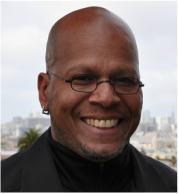
Christian Davenport is a Professor of Political Science at the University of Michigan, Research Professor at the Peace Research Institute Oslo and Recent Fellow to the American Academy of Arts and Sciences. Primary research interests include political conflict (e.g., human rights violations, genocide/politicide, torture, political surveillance, civil war and social movements), measurement, racism and popular culture. He is the author of seven books: most recently The Peace Continuum: What it is & How to Study it with Erik Melander and Patrick Regan (Oxford University Press, 2018), Ethnic Politics and Conflict/Violence: State of the Field and New Directions with Erika Forsberg & Johanna Birnir (Taylor and Francis, forthcoming), and How Social Movements Die: Repression and Demobilization of the Republic of New Africa (Cambridge University Press). He has also written dozens of articles (e.g., in the American Political Science Review, the American Journal of Political Science and the American Sociological Review) and is the recipient of numerous awards (including 10 from the National Science Foundation and was a Residential Fellow at the Center for Advanced Study in the Behavioral Sciences at Stanford University). Christian is also engaged in various data collection efforts, developing crowd-sourcing data collection programs and co-organizing workshops/conferences/webportals facilitating the development of conflict/peace studies. For more information, please refer to the following webpage: www.christiandavenport.com.

Ragnhild Nordas is an Assistant Professor of Political Science at the University of Michigan as well as Senior Researcher at the Peace Research Institute Oslo (PRIO). She studies the causes, dynamics and aftereffects of sexual violence (associated with the Sexual Violence in Armed Conflict or SVAC dataset); religion, climate, and demography as it influences conflict; human rights violation/repression; and, civil war. Her work has been published in the American Journal of Political Science, Journal of Peace Research, Journal of Conflict Resolution, International Studies Quarterly and Political Geography. Ragnhild has received research grants from the National Science Foundation in the US; the Research Council of Norway and the Norwegian Foreign Ministry in Norway; and, Folke Bernadotte Academy in Sweden. She also held a Predoctoral Fellowship in the Belfer Center at Harvard Kennedy School and a Visiting Fellowship at the Kroc Institute, University of Notre Dame.
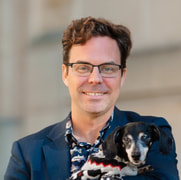
Christopher Farris is an Associate Professor in the political science department at the University of Michigan. In June 2013, Christopher graduated with a Ph.D. in political science from the University of California, San Diego. He also studied at the University of North Texas, where he graduated with an M.S. in political science (2007), a B.F.A in drawing and painting (2005), and a B.A. in political science (2005). Christopher's core research interest is in the politics of human rights, violence, and repression. He uses computational methods to understand why governments around the world choose to torture, maim, and kill individuals within their jurisdiction. Other projects cover a broad array of themes, ranging from foreign aid to American voting behavior, but share a focus on computationally intensive methods and research design. These methodological tools, essential for analyzing "big data", open up new insights into the micro-foundations of state repression. Below you will find links to his publications (which have appeared in diverse venues like Science and the American Political Science Review), working papers, coauthors' webpages, a Dataverse archive where you can access replication data and a link to Human Rights Scores generated from two measurement projects with Keith Schnakenberg.
Faculty Participants from the University of Michigan, Political Science

James Morrow is A.F.K. Organski Collegiate Professor of World Politics and Research Professor at the Center for Political Studies, both at the University of Michigan, having also taught at the Graduate Institute of International Studies in Geneva, Switzerland, Stanford University, the University of Rochester, and Michigan State University. His research addresses crisis bargaining, the causes of war, military alliances, arms races, power transition theory, links between international trade and conflict, the role of international institutions, international law, and domestic politics and foreign policy. He is the author of Order within Anarchy, Game Theory for Political Scientists, co-author of The Logic of Political Survival, and author of over thirty articles in refereed journals and another thirty other publications. James is a member of the American Academy of Arts and Sciences. He received the Karl Deutsch Award from the International Studies Association in 1994. He was President of the Peace Science Society in 2008-2009 and has held fellowships from the Social Science Research Council and the Hoover Institution.

Megan A. Stewart is an Associate Professor at the University of Michigan's Ford School of Public Policy. Her research focuses on how political actors attempt to transform structural inequalities, and how war or political violence is often the context or consequence of these endeavors. Her book, Governing for Revolution, was published by Cambridge University Press in 2021. It explores why some rebel groups undertake costly and burdensome governance projects to transform social inequities during civil wars, while other rebel groups do not. Megan's other work has been published or is forthcoming in venues such as International Organization, Journal of Politics, European Journal of International Relations, Comparative Political Studies, the Journal of Conflict Resolution, and other outlets.
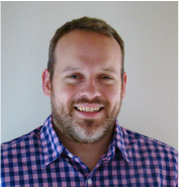
Iain Osgood is an Associate Professor of Political Science at the University of Michigan. He studies international political economy and international relations, with a focus on firms and the politics of trade. His research explores the politics of trade liberalization in industries characterized by firm heterogeneity and global supply chains, as well as the relationship between globalization and discriminatory institutions. His PhD is from Harvard University's Department of Government.

Mark Dincecco is an Associate Professor in the Department of Political Science at the University of Michigan. He specializes in historical political economy, the political economy of development, and international political economy. He is the author of three books and numerous journal articles. His first book is Political Transformations and Public Finances: Europe, 1650-1913 (Cambridge University Press, 2011). His second is State Capacity and Economic Development: Present and Past (Cambridge University Press, 2017). His third is From Warfare to Wealth: The Military Origins of Urban Prosperity in Europe (Cambridge University Press, 2017; coauthored). This book is the winner of the 2018 William H. Riker Best Book Award. In 2016-17, he was the Edward Teller National Fellow at the Hoover Institution at Stanford University.
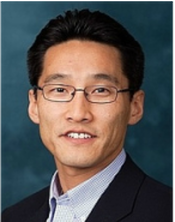
Brian Min is an Associate Professor of Political Science at the University of Michigan. He studies the political economy of development with an emphasis on distributive politics, public goods provision, and ethnic conflict. His current research uses satellite imagery of nighttime lights and other geo-coded data to show how the distribution of electricity is shaped by electoral politics across the developing world. He has also conducted research on ethnic politics and conflict, including the construction of the Ethnic Power Relations (EPR) dataset of politically relevant ethnic groups around the world from 1946–2005. His research has been supported by the National Science Foundation, the World Bank, and the International Growth Centre and appears in outlets including World Politics, the Annual Review of Political Science, and the American Sociological Review.
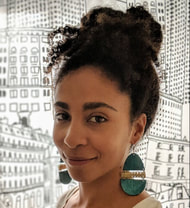
Shea Streeter is an Assistant Professor of Political Science at the University of Michigan. In her research she studies the circumstances under which state violence triggers protest and citizens’ responses. In her dissertation she explores the racial politics behind protesting police violence in the United States. Shea created the Police Killings a Protest dataset (PKAP), a unique source with more than 300 variables associated to every known police killing since 2015. Her work combines advanced machine learning techniques, survey experiments, and qualitative work in American cities. Shea graduated with a PhD in Political Science from Stanford University.
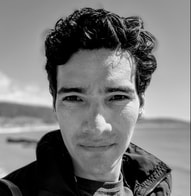
Edgar Franco Vivanco is an Assistant Professor of Political Science at the University of Michigan. His two research agendas explore how colonial era institutions and contemporary criminal violence shape economic under-performance, particularly within Latin America. Using a multi-method approach which combines statistical analysis, archival research, GIS, text analysis, machine learning, and survey experiments, his historical work examines the strategies that Indigenous communities have used to survive colonial rule. These strategies range from violent collective action to active collaboration, and from voluntary isolation to cultural assimilation. His work on modern-day violence in Latin America examines the different ways that criminal groups interact with the state and society, as well as how they respond to police interventions. Edgar earned his PhD in Political Science at Stanford University in 2019 and also holds a M.A. in Public and Educational Policy from Stanford.
Graduate Student Participants from the University of Michigan, Political Science (See CPRD Students on the market here)
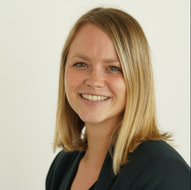
Kate Knapp is a PhD candidate in Political Science at the University of Michigan. Her research interests include the strategy of armed conflict, foreign intervention, and security/military assistance. Kate has more than seven years of experience working in Mali, DRC, Kenya, Azerbaijan, Nepal, and Bangladesh on peace agreement implementation, political analysis, and conflict mapping. She holds a B.A. in Early Childhood Education from Clemson University and a M.S.Ed. in International Development from the University of Pennsylvania. You can reach her at [email protected].

Collin Sullivan is a Ph.D. student in the Department of Political Science at the University of Michigan. His research interests include applications of formal theory and complex systems methodology to the prediction, prevention, and mitigation of human rights abuses, political violence, atrocities, and genocide. Collin has worked for more than ten years as a human rights practitioner, training human rights defenders, activists, journalists, researchers, observers, monitors, and others around the world on secure and strategic documentation of human rights abuses, and on open source investigative techniques and methods. He is a Research Fellow at the Human Rights Center at the School of Law at the University of California, Berkeley, and continues to support human rights defenders in their work. You can reach him at [email protected].
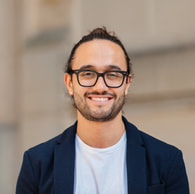
Martin Macias Medellin is a PhD student in Political Science and Scientific Computing at the University of Michigan where he is also doing a dual master’s degree in Statistics. He is interested in the dynamics of mass political dissent, political and criminal violence, and state-building processes. In his doctoral dissertation he studies how conflict affects the way in which cities are built and how the physical structures of urban areas affect the dynamics of armed conflict. He has received financial support from Rackham Graduate School and the Institute for Social Research at the University of Michigan. His research has been published in International Interactions and Political Research Quarterly. You can reach him at [email protected].

Caroline Lindy is a PhD student at the University of Michigan studying conflict and human rights. She is interested in understanding the economic and political drivers of the proliferation of concentration camps around the world. Before coming to Michigan, she received a joint bachelor’s and master’s degree in Political Science at Boston University in 2022. Her thesis traced the development of racialized stereotypes against Asian-American and Pacific Islanders through 100 years of military expedition through the lens of combat-related trauma. Her article with Nicholas Micinski on the role of Celebrity Refugees and Foreign Policy can be founding Global Studies Quarterly. You can reach her at [email protected].
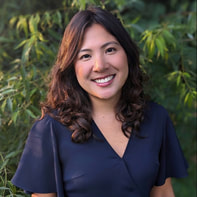
Rebecca Wai is a PhD candidate at the University of Michigan. Her research focuses on how migrants and refugees are able to gain equitable access to resources when they settle in host communities, especially in the age of growing natural resource scarcity. She is particularly interested in how local community institutions can help integrate migrants into host communities. She examines how these institutions increase interaction between migrants and hosts, and foster economically productive cooperation. Rebecca spent a year in Uganda working on her dissertation project, which looks at how farmer groups bring refugees and host communities together. She is a 2023-2024 USIP Peace Scholar. You can reach her at [email protected].
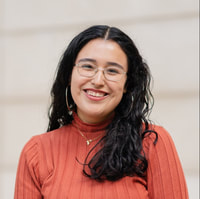
Esmeralda López is a PhD student in Political Science and Public Policy at the University of Michigan. She is interested in the barriers to reporting wartime sexual violence, how wartime sexual violence data is collected and measured, and how the issue is addressed by policymakers. Before coming to Michigan, Esmeralda received B.A.s in Political Science and in History at the University of North Texas, where she was a McNair Scholar. You can reach her at [email protected].
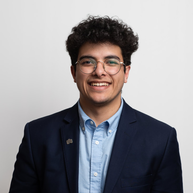
Mostafa El Sharkawy is a PhD student in the Department of Political Science at the University of Michigan. His research interests focus on perceptions and reactions to political violence and the role of various religious institutions and leaders in shaping them. He is also interested in the historical legacies of political violence in various contexts, state regulation of religion and applications of computational text analysis. Before coming to Michigan, Mostafa received his B.A. in International Relations from the University of Toronto. He previously worked at the Canadian Network for Research on Terrorism, Security, and Society where his research focused on violent extremism in Canada. He can be reached at [email protected].
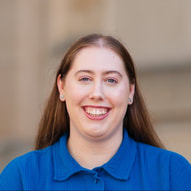
Rebecca Rose is a Political Science PhD student at the University of Michigan where she specializes in World Politics. Her research interests generally include peacebuilding and peace processes after civil conflict, with a particular interest in the role of gender and participation of women in these spaces. Currently, she pursues an active research agenda on Peace Museums and is working on a project about women in war with Dr. Biz Herman. Her regional focus and most of her work concerns the West Balkans, with a focus on the former Yugoslavia. She graduated from King’s College London with a BA(Hons.) in War Studies with first class honours. You can reach Rebecca at [email protected].
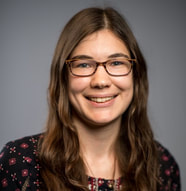
Rebecca Savelsberg is a PhD candidate in Political Science at the University of Michigan. She is interested in causes and deterrents of conflict recurrence, peacebuilding in post-conflict environments, and the long-term impact of violence on political processes. Her methodological areas of interest include causal inference and field experiments. Before coming to Michigan, Rebecca spent time in Morocco and Benin researching and working in development aid, as well as teaching English in Turkey as a Fulbright scholar. She received a B.A. in International Relations from NYU in 2014. You can reach her at [email protected].
Associated Faculty from Other Institutions
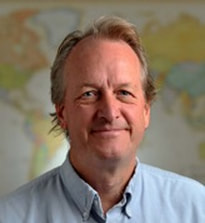
Gary Goertz is a Professor at the Kroc Institute for International Peace Studies at the University of Notre Dame. He is the author or co-author of nine books and over 50 articles and chapters on issues of international conflict and peace, international institutions, and methodology, including "War and Peace in International Rivalry" (2000), "International Norms and Decisionmaking: A Punctuated Equilibrium Model" (2004), "Social Science Concepts: A User's Guide" (2006), "A Tale of Two Cultures: Qualitative and Quantitative Research in the Social Sciences" (2012). His current activities include the Causes of Peace project which explores the rise of interstate peace since 1900. The first volume of that project The Puzzle of Peace: Explaining the Rise of Peace in the International System (with Paul Diehl and Alex Balas) has been published by Oxford University Press (March 2016).
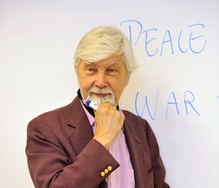
Professor Peter Wallensteen is Senior Professor of Peace and Conflict Research, Uppsala University, Uppsala, Sweden (since 2012) and the Richard G. Starmann Sr. Research Professor at the Kroc Institute, University of Notre Dame, USA (since 2006). Peter led the Department of Peace and Conflict Research at Uppsala University 1972-1999 and held the Dag Hammarskjöld Chair 1985-2012. He directed the Uppsala Conflict Data Program (UCDP) until July 31, 2015. UCDP publishes freely available information on global conflict, even as an app for smart phones. Peter's most recent book is Quality Peace: Peacebuilding, Victory and World Order (Oxford University Press 2015). Together with Swedish diplomat Anders Burner, he published Regional Organizations and Peacemaking: Challengers to the UN? (London: Routledge) in 2014, with contributions by practitioners as well as researchers. Peter's Understanding Conflict Resolution (Fourth Edition, Sage 2015) is being used worldwide, and has been translated into Arabic and Korean. Peace Research: Theory and Practice (Routledge 2011) holds a collection of his writings and has just been translated into Chinese. With Isak Svensson Peter published The Go-Between. Jan Eliasson and Styles of Mediation (USIP Press 2010). He is presently working on mediation issues with Professor Isak Svensson focusing Nordic mediators. A manuscript (in Swedish) has recently been sent to the publisher. The book on quality peace is part of a project at the Kroc Institute and Peter is working on an edited volume of case studies on this topic, together with Dr. Madhav Joshi. He has also written extensively on causes of war, peace issues, sanctions, UN affairs and global governance.
Alumni of CPRD
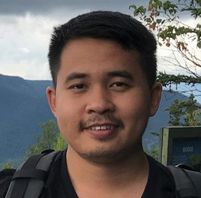
Htet Thiha Zaw graduated with a PhD in Political Science from the University of Michigan in 2023. He is interested in how the provision of public goods, particularly education, interacts with state development and political behaviour in developing countries. Before coming to Michigan, he contributed to research projects on education policies in Syria, Iraq, Indonesia, and Myanmar (Burma). He holds a BSc in Global Economics and Finance from the Chinese University of Hong Kong. You can reach him at [email protected] and find his webpage here.
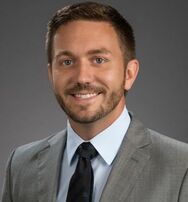
Tim Jones graduated with a PhD in Political Science from the University of Michigan in 2023. He is interested in the dynamics of political violence and impact of third-party intervention on the durability and quality of peace. He has methodological interests in field experiments and causal inference. Prior to coming to Michigan served as a Senior Targeting Officer at the Naval Special Warfare Development Group (NSWDG) and worked across the Middle East, East Africa, and South Asia conducting counterterrorism and counter-weapons of mass destruction (WMD) analysis. Tim holds a Master of Science in Strategic Intelligence from the National Intelligence University and a Master of International Affairs from the University of California San Diego’s School of Global Policy &
Strategy. You can reach him at [email protected].
Strategy. You can reach him at [email protected].
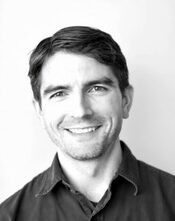
Yuri M. Zhukov was an Associate Professor of Political Science at the University of Michigan until 2023. Yuri's research focuses on the causes, dynamics and outcomes of conflict, at the international and local levels. His methodological areas of interest include spatial statistics, mathematical/computational modeling and text analysis. Yuri holds degrees from Harvard University (Ph.D.), the Graduate School of Foreign Service at Georgetown University (M.A.) and Brown University (A.B.). His research has been published or is forthcoming in American Political Science Review, Foreign Affairs, International Studies Quarterly, Journal of Conflict Resolution, Journal of Peace Research, Political Geography, World Politics and several edited volumes and general-audience publications.
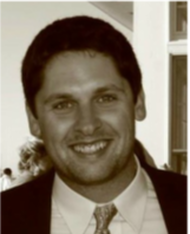
Tom O'Mealia graduated with a PhD in Political Science from the University of Michigan in 2022. His research spans international relations and comparative politics. He studies the internal security apparatus, civil-military relations, and political violence in the Central and East African contexts. Tom has conducted field research in the Democratic Republic of Congo and Kenya. You can find his webpage here and email him at [email protected].
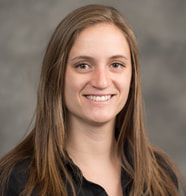
Corina Simonelli graduated with a PhD in Political Science from the University of Michigan in 2021. Her research focuses on the dynamics of armed conflict, post conflict economic development, and third party intervention in conflict termination and recurrence. Corina was previously the Program Manager of the Project on Violent Conflict where she oversaw data collection on the organizational characteristics and networks of violent non-state actors. She also worked for the Global Terrorism Database (GTD) on documenting terrorist attacks. She holds a BA in Political Science from the University at Albany. You can reach her at [email protected].
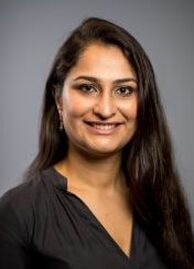
Roya Talibova graduated in 2022 with a dual PhD in Political Science and Scientific Computing, as well as a M.S. degree in Statistics from the University of Michigan. She studies international relations and quantitative methods with a secondary focus on comparative politics. Her research addresses a variety of topics related to political violence and its long-run effects on political economy and development. Her dissertation studies combat motivation in authoritarian regimes. Specifically, she examines why ordinary civilians support an autocrat's war-making efforts in the aftermath of repression, and how wartime experiences affect repressed citizens' post-conflict behavior. Her research has been supported by the Carnegie Corporation, Harry Frank Guggenheim Foundation, Weiser Center for Emerging Democracies, Institute for Social Research, Center for the Education women, and several other centers at the University of Michigan. Roya holds an MPA degree from Harvard University and MA in International Relations from Seton Hall University, John Whitehead School of Diplomacy. You can reach her at [email protected] and find her webpage at www.royatalibova.com.
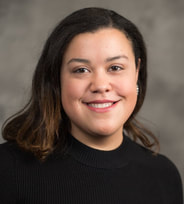
Kiela Crabtree graduated with a PhD in Political Science from the University of Michigan in 2022. Her research focuses on the political legacies of conflict in the United States, emphasizing the dynamics of social identity and hierarchy. With interests in both contemporary and historical conflict, Kiela has conducted intensive archival work on the legacies of Civil Rights Era violence and terrorism in the American south, and she continues to examine the implications of such violence for present-day political behavior. Kiela earned her BA in Politics from Sewanee: The University of the South and her MA in Political Science from the University of Michigan. She can be reached at [email protected].
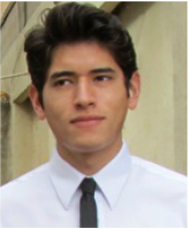
Adrian Arellano is a PhD student at the University of Michigan whose broad interests include rebel groups fragmentation, dynamic interaction between dissident groups and the state during conflict and peace, and political violence. He is interested in rebel group fragmentation during conflict from an organizational and selective theory perceptive. By focusing on the institutional structure of rebel groups he hopes to understand different observable behaviors such as splintering, varying degrees of political violence, and rebel on rebel violence. You can reach him at [email protected].
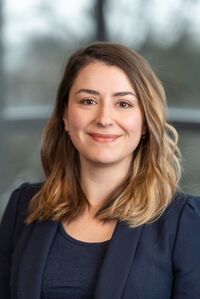
Sasha de Vogel is a PhD student in Political Science at the University of Michigan. Sasha specializes in authoritarian politics, collective action and the politics of the former Soviet Union, particularly Russia. Her research considers how authoritarian regimes respond to protest movements, the conditions in which protesters are promised concessions, and the effect that concessions have on protesters' ability to sustain activism. Whereas much of what is known about how authoritarian protest response is based on highly politicized opposition movements that are often repressed, Sasha's work shifts the focus to protests that demand changes related to social and economic policies, as these protests constitute a significant share of collective action events, even in repressive regimes. Sasha's dissertation provides a comprehensive theorization of concessions as a strategy of demobilization. She tests related hypotheses using original quantitative and qualitative data on protest campaigns against the government of Moscow, Russia. Her research has been supported by a National Science Foundation Doctoral Dissertation Research Improvement Grant, a Carnegie Corporation-Harriman Institute Research Grants for Ph.D. Students in the Social Sciences, and a Weiser Emerging Democracies Fellowship, among other grants. For more information about Sasha, please visit sashadevogel.com
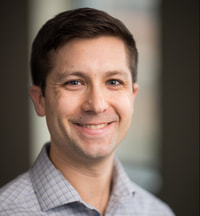
Todd Lehmann studies the causes, dynamics, and consequences of international conflict, alliances and security cooperation, civil conflict, battlefield effectiveness, civil-military relations, and military organizations. Before coming to Michigan, Todd was an active duty Air Force officer for eight years. He holds a BA in Operations Research from the US Air Force Academy and an MA in International Relations from Creighton University. You can find more information on his website here or contact him at [email protected].
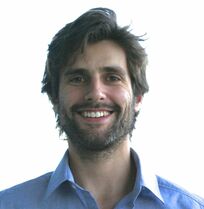
Jean Lachapelle is a postdoctoral fellow with the Weiser Center for Emerging Democracies at the University of Michigan, Ann Arbor. His research interests lie at the intersection of comparative politics and international relations, addressing issues of state repression, coups and revolutions, and the relationship between violence and political order more generally. Methodologically, he combines formal methods and statistical analyses with qualitative case studies, with regional expertise in the Middle East and North Africa (MENA) region. Jean’s current book project examines the causes and consequences of state repression in authoritarian regimes, focusing on the role of ordinary citizens and explaining how they shape autocrats’ incentives to use violence. Entitled “The People are Watching: State Repression in Egypt between 1981 and 2015," it theorizes the decision-calculus of authoritarian rulers to deploy repression, using interviews and an original dataset of protests and repressive events collected over the course of 16 months of research in Egypt. Jean’s second project compares patterns of violence with Syria, Iraq, and Tunisia with the aim of explaining why authoritarian regimes of the MENA exercise different levels of violence against their own citizens.
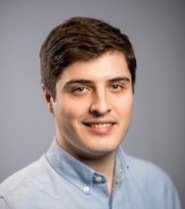
Blake Miller studies media in authoritarian regimes, electoral authoritarianism, and Chinese politics. He is also interested in applications of machine learning and natural language processing methods to political science. He holds a BA from Stanford University in Political Science and worked as a software engineer for several years before coming to Michigan.
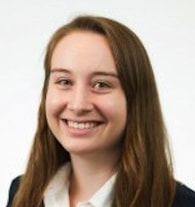
Jessica Sun is a PhD student in Political Science at the University of Michigan. Her research focuses broadly on armed conflicts and state management of security institutions. Her work uses formal models to study government tactics in civil conflict ranging from repression to indiscriminate violence against both civilians and infrastructure. You can find more information on her website or contact her at [email protected].
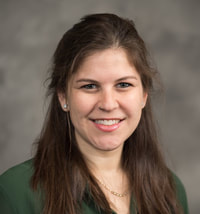
Carly Wayne is a PhD candidate in Political Science at the University of Michigan. Her research interests lie at the intersection of security studies, modern warfare, terrorism and the psychology of political violence. Specifically, she is interested in exploring the strategic and psychological dimensions of non-conventional warfare, terrorism in particular. The fundamental question that drives her dissertation research is: why do powerful governments react so strongly to attacks by terrorist groups that appear to pose little to no existential threat to the state? Her research integrates findings from the study of emotions and cognition with insights derived from bargaining models of war in order to elucidate the strategic interaction between terrorists and the civilian populations they target, exploring the ways in which terrorist groups attempt to strategically manipulate distinct emotional and political responses among civilian populations. Carly also studies the behavioral micro-foundations of states’ diplomatic and military policies, investigating the impact of cognitive, emotional and motivational phenomena on leaders’ crisis decision making. You can reach her at [email protected].
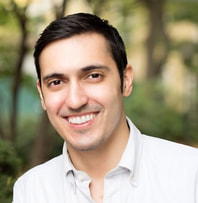
Jeffrey Javed is currently a Postdoctoral Fellow at the Lieberthal Rogel Center for Chinese Studies at the University of Michigan. His research primarily focuses on social mobilization and collective violence. In addition, he is working on projects on legal legitimacy and memory politics in China. His book project—Righteous Revolutionaries—explores the process by which the nascent Chinese Communist Party-state used moral norms to mobilize popular participation in political repression during the mass campaigns of the early 1950s. He received his PhD in 2017 from the Department of Government at Harvard University; and received his B.A. in Sociology and East Asian Studies from Cornell University in 2009. His personal webpage is accessible here.
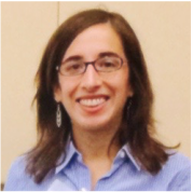
Meredith Blank recently graduated from the University of Michigan’s Department of Political Science. Her work examines the relationship between security forces, civil conflict and repression. Her dissertation, “Managing with Militias,” shows how modern governments organize their security apparatus during internal conflict and, once formed, how this apparatus impacts human rights and the resumption of violence within the state. She has won numerous awards and external funding for her research on internal security forces and repression, including the 2015 Pre-Doctoral Research Fellowship from The George Washington University and the 2014 Graduate Fund for Research on Humanitarianism from University of Michigan. Her authored and co-authored articles on the topic include “Managing with Militias: State Formation, War, and Government Sponsorship of Militias” and “Deadly, Destructive and Decentralized: Security Organizations and State Repression.” She has presented her work at both government and academic conferences. You can reach her at [email protected].
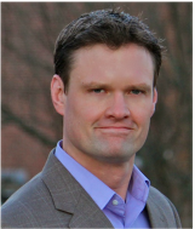
Kevin Cope recently graduated from the University of Michigan’s Department of Political Science.. In 2016 he will begin a position at the University of Virginia as a Research Assistant Professor of Law. His primary research interests involve the intersection of international relations and international law, in particular, how institutions shape cooperation and conflict among states. He is especially interested in relationships between domestic institutional structure and international behavior. His scholarship has appeared in several academic journals, and in books published by Oxford University Press, Brill, Edward Elgar, Cambridge University Press, and others. Kevin has served as a federal judicial clerk three times, and, as an attorney, he handled trial and appellate actions involving the World Bank, the Foreign Corrupt Practices Act, the U.S. Constitution, and the Convention Against Torture. In law school, he served as an editor of the Northwestern University Law Review. You can reach him at [email protected]; his personal webpage is www.kevinlcope.com.
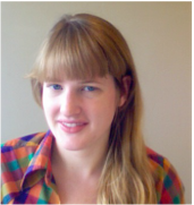
Laura Seago is a PhD student at the University of Michigan studying world politics and public policy. Laura's research lies at the nexus of political economy and conflict studies, where she focuses on the effect of multinational corporations on human rights outcomes in the developing world. She is especially interested in the potentially perverse effect of "corporate social responsibility" on the behavior of states and domestic firms. Before coming to Michigan, Laura worked for Latinos Progresando in Chicago and The Brennan Center for Justice at the NYU School of Law, and earned her BA from the University of Chicago. She is a recipient of the 2011 NSF Graduate Research Fellowship.

Allan Stam is the Dean of the Frank Batten School of Leadership and Public Policy at the University of Virginia. Previously he was Director of the International Policy Center at the Gerald R Ford School of Public Policy and Professor of Political Science at the University of Michigan. Allan's research focuses on the dynamics of armed conflict between and within states. His work on war outcomes, war durations, mediation, and alliance politics appears in numerous political science journals including the American Political Science Review, International Security, and the British Journal of Political Science. Allan has received several grants supporting his work, including five from the National Science Foundation. His books include Win Lose or Draw (University of Michigan Press, 1996) and Democracies at War (Princeton University Press, 2002), The Behavioral Origins of War (University of Michigan Press, 2004) and Why Leaders Fight (Cambridge University Press, 2015). He is a lifetime member of the Council on Foreign Relations and in 2007 he was a Residential Fellow at the Center for Advanced Study in the Behavioral Sciences at Stanford University and was the recipient of the 2004 Karl Deutsch award. Allan has worked on several consulting projects for the Department of Defense and the US Navy’s Joint Warfare Analysis Center. His current projects include developing a GIS model of the 1994 Rwandan genocide and modeling the effects of national leaders’ military training and combat trauma on their country’s propensity to engage military conflict.
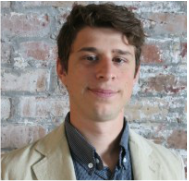
Christopher Sullivan is an Assistant Professor of Political Science at Louisiana State University. He received his Ph.D. from the University of Michigan in 2014. Christopher's research and teaching interests focus on human rights and political violence. His current work examines the intersection of state repression and civil conflict in Guatemala, Northern Ireland, and the United States. Recent publications have appeared in The Journal of Politics, The Journal of Conflict Resolution, The Journal of Peace Research, International Interactions, and Conflict Management and Peace Science. Christopher can be reached at [email protected].
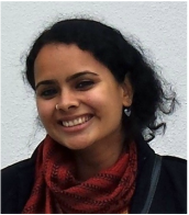
Priyamvada Trivedi is a PhD candidate at the University of Michigan. Priyam is interested in questions of order and change. Specifically, in her dissertation she is trying understand variations in levels of conformity to a social order. Specifically, how does a social order that predates the modern state manage itself when confronted with a new political order? Does the political order create a new social order by displacing the old social order? Or does the old social order and new political order make compromises such that some old ways of living are preserved and some new ways of living are introduced? If so, then whose interests are being preserved and whose are not? Or does the old simply reject the new and exert its dominance via mobilizing resources and engaging in collective action? Priyam hopes to be able to empirically explore these questions through using both qualitative and quantitative methods. Before joining the Political Science program at Michigan, Priyam was in the Sociology graduate program at Notre Dame. She has her undergraduate degree in Electrical Engineering from Purdue. You can reach her at [email protected]. Her personal webpage can be viewed here.

Scott Tyson is an Assistant Professor of Political Science at the University of Michigan. Scott's research focuses on formal political theory, political economy, authoritarian politics, and collective action. Specifically, the main line of his research studies the relationship between different coordination problems that share some common element, thereby isolating the role of factions in collective action. His previous research has focused on studying the conflict dynamic between two imperfectly coordinated groups to understand how the two coordination problems are interrelated, and hence, study strategic feedback that results through conflict. Scott also studies issues of political accountability in non-democratic environments, where government officials are sanctioned by non-electoral institutions.

Gary Uzonyi is a Visiting Assistant Professor of Political Science at Duke University. He received his Ph.D. from the University of Michigan in 2013. Gary’s research and teaching interests focus on conflict and human rights. His current work examines genocide and politicide. Recent publications have appeared in Journal of Peace Research, International Studies Quarterly, Conflict Management and Peace Science, International Interactions, and Political Studies. For more information, please refer to his webpage.
